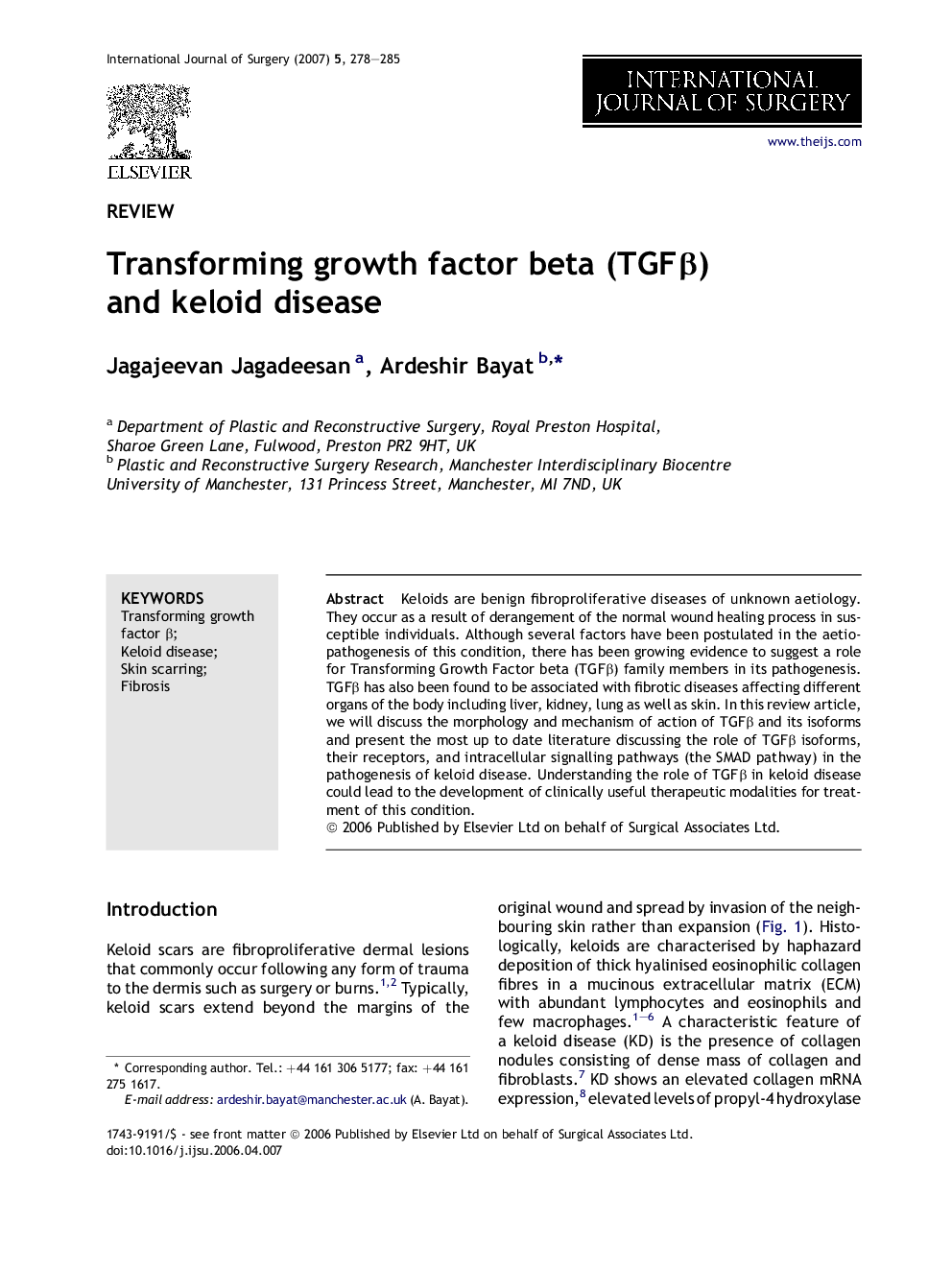| Article ID | Journal | Published Year | Pages | File Type |
|---|---|---|---|---|
| 4287846 | International Journal of Surgery | 2007 | 8 Pages |
Keloids are benign fibroproliferative diseases of unknown aetiology. They occur as a result of derangement of the normal wound healing process in susceptible individuals. Although several factors have been postulated in the aetiopathogenesis of this condition, there has been growing evidence to suggest a role for Transforming Growth Factor beta (TGFβ) family members in its pathogenesis. TGFβ has also been found to be associated with fibrotic diseases affecting different organs of the body including liver, kidney, lung as well as skin. In this review article, we will discuss the morphology and mechanism of action of TGFβ and its isoforms and present the most up to date literature discussing the role of TGFβ isoforms, their receptors, and intracellular signalling pathways (the SMAD pathway) in the pathogenesis of keloid disease. Understanding the role of TGFβ in keloid disease could lead to the development of clinically useful therapeutic modalities for treatment of this condition.
